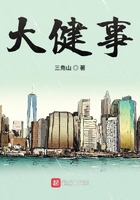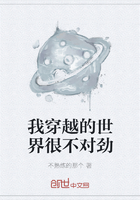Under the new order the going concern in production is the plant or shop, the works, not the individual workman. The plant embodies a standardised industrial process. The workman is made use of according as the needs of the given mechanical process may require. The time, place, rate, and material conditions of the work in hand are determined immediately by the mechanically standardised process in which the given plant is engaged; and beyond that all these matters are dependent on the exigencies and manoeuvres of business, largely by way of moderating the rate of production and keeping the output reasonably short of maximum capacity. The workman has become subsidiary to the mechanical equipment, and productive industry has become subservient to business, in all those countries which have come in for the latter-day state of the industrial arts, and which so have fallen under the domination of the price system.
Such is the state of things throughout in those greater industries that are characteristic of the New Order; and these greater industries now set the pace and make the standards of management and valuation for the rest. At the same time these greater industries of the machine era extend their domination beyond their own immediate work, and enforce a standardisation of much the same mechanical character in the community at large; in the ways and means of living as well as in the ways and means of work. The effects of their mechanically standardised production, in the way of goods and services as well as in the similarly standardised traffic through which these goods and services are distributed to the consumers, reach out into the everyday life of all classes; but most immediately and imperatively they reach the working class of the industrial centers. So they largely set the pace for the ordinary occupations of the common man even apart from any employment in the greater mechanical industries. It is especially the latter-day system of transport and communication as it works out under the new order highly mechanical and exactingly scheduled for time, rate and place -- that so controls and standardises the ordinary life of the common man on mechanical lines.
The training enforced by this mechanical standardisation, therefore, is of much the same order throughout the community as it is within the mechanical industries proper, and it drives to the same outcome, -- submergence of the personal equation. So that the workday information and the reasoning by use of which all men carry on their daily life under the new order is of the same general character as that information and reasoning which guides the mechanical engineers; and the unremitting habituation to its scope and method, its principles of knowledge and belief, leads headlong to a mechanistic conception of things, ways, means, ends, and values, whether it is called by that name or not. The resulting frame of mind is often spoken of as Materialism. This impersonal character of workday habituation is particularly to be counted on to take decisive effect wherever the latter-day scheme of mechanical standardisation takes effect with all that wide sweep and massive drift with which it now dominates the larger centers of population.
Since the modern era began, the state of the industrial arts has been undergoing a change of type. Such as the followers of Mendel would call a "mutation." And in the course of this mutation the workman and his part in the conduct of industry have suffered as great a dislocation as any of the other factors involved. But it is also to be admitted that the typical owner-employer of the earlier modern time, such as he stood in the mind's eye of the eighteenth-century doctrinaires, -- this traditional owner-employer has also come through the period of the mutation in a scarcely better state of preservation. At the period of this stabilisation of principles in the eighteenth century, he could still truthfully be spoken of as a "master," a foreman of the shop, and he was then still invested with a large reminiscence of the master-craftsman, as known in the time of the craft-gilds. He stood forth in the eighteenth-century argument on the Natural Order of things as the wise and workmanlike designer and guide of his workmen's handiwork, and he was then still presumed to be living in workday contact and communion with them and to deal with them on an equitable footing of personal interest.
Such a characterisation of the capitalist-employer who was doing business at the time of the Industrial Revolution may seem over-drawn; and there is no need of insisting on its precise accuracy as a description of eighteenth-century facts. But it should not be extremely difficult to show that substantially such a figure of an employer-owner was had in mind by those who then argued the questions of wages and employment and laid down the lines on which the employment of labor would be expected to arrange itself under the untroubled system of natural liberty.
But what is more to the point is that which is beyond question.
In practical fact, almost as fully as in the speculations of the doctrinaires, the employer of labor in the staple industries of that time was, in his own person, commonly also the owner of the establishment in which his hired workmen were employed; and also -- again in passable accord with the facts -- he was presumed personally to come to terms with his workmen about wages and conditions of work. Employment was considered to be a relation of man to man. That much is explicit in the writings which bear the date-mark of this modern Liberal point of view; and the same assumption has continued to stand over as a self-sufficient premise among the defenders of the free competitive system in industry, for three or four generations after that period.















